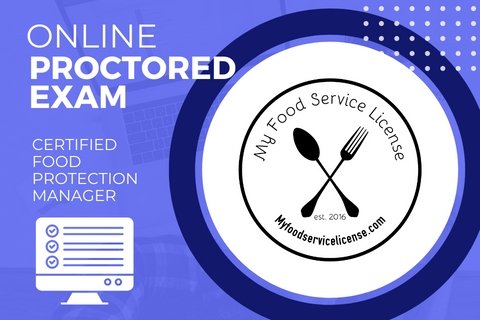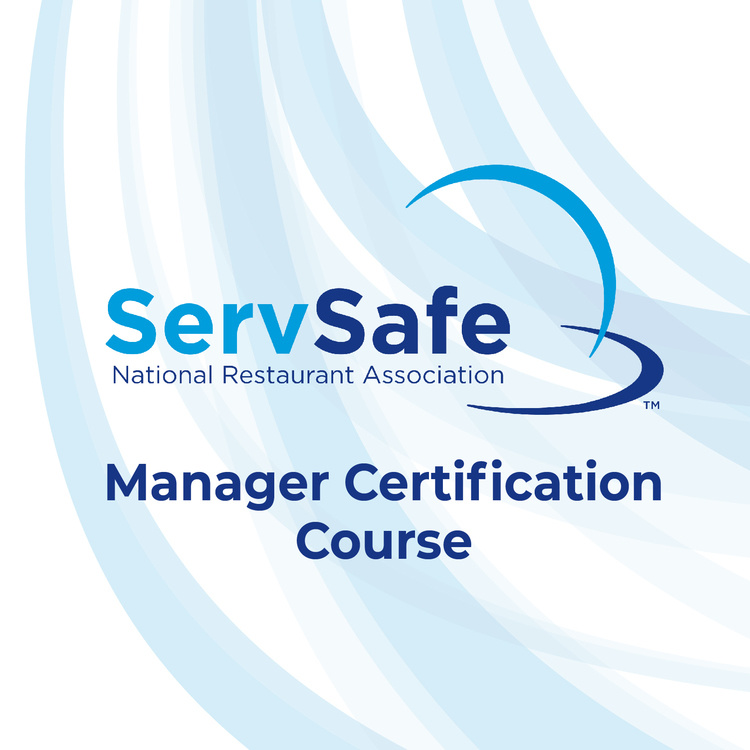Just how to Train Your Staff for ServSafe Manager Certification and Enhance Operations
Just how to Train Your Staff for ServSafe Manager Certification and Enhance Operations
Blog Article
Expert Training for Food Supervisor Accreditation Made Simple
The importance of food manager accreditation can not be underrated, specifically in an era where food safety is critical. Specialist training programs have actually evolved to streamline the certification process, supplying important expertise and practical abilities needed for reliable food management.
Value of Food Manager Certification
The relevance of Food Supervisor Accreditation can not be overstated in today's food solution market. This accreditation indicates that food supervisors possess the important understanding and abilities to guarantee food security, preserve health and wellness criteria, and promote regulative conformity. In a period where foodborne ailments can have extreme effects, the duty of a licensed food supervisor ends up being essential in protecting public health.
Food Manager Accreditation not only gears up individuals with the knowledge to recognize and mitigate food safety dangers but also improves the reliability of the establishment. Clients are progressively critical; they seek guarantee that their dining experience is safe and sanitary. Accreditation acts as a mark of professionalism and reliability that can bring in and keep clients.
Furthermore, a licensed food manager can lead staff training, cultivating a culture of safety and accountability within the workplace (ServSafe Food Manager Certification). Spending in Food Supervisor Accreditation is a financial investment in top quality, safety, and the general success of food service operations.
Overview of Specialist Training Programs
Professional training programs for food manager accreditation are developed to provide extensive education and learning on food safety techniques, regulatory compliance, and risk monitoring. These programs aim to gear up food service specialists with the expertise and skills essential to guarantee secure food handling and preparation in numerous settings, consisting of dining establishments, catering solutions, and institutional food operations.
Commonly, specialist training programs include both academic and functional parts, enabling participants to involve with real-world scenarios. The curriculum frequently consists of necessary topics such as foodborne health problems, correct food storage space strategies, cleanliness methods, and employee training strategies. Moreover, these programs are often updated to straighten with the most current market criteria and guidelines, making sure that participants receive present and relevant information.
Many programs use flexible shipment techniques, including in-person classes, online training courses, or a hybrid approach, dealing with various discovering choices and routines. Upon effective conclusion, participants normally receive accreditation, which is commonly identified by local health departments and regulatory agencies, improving their occupation potential customers within the food service industry. Generally, specialist training programs play a critical duty in cultivating a society of food security and conformity among food supervisors and personnel.
Trick Topics Covered in Training
Food safety is an essential emphasis in food manager accreditation training, encompassing a range of crucial topics that make certain individuals are well-appointed to deal with food safely. One of the primary subjects covered is the value of individual hygiene, which includes proper handwashing strategies and the importance of keeping cleanliness in cooking areas.
Additionally, the training addresses foodborne health problems, outlining the numerous virus that can infect food and the signs connected with these health problems. Individuals learn more about the conditions that advertise bacterial development, which is crucial for preventing break outs.
Temperature control is an additional vital subject, stressing the risk-free food preparation, air conditioning, and storage temperature levels required to lessen threats. The training likewise covers cross-contamination avoidance approaches, ensuring that raw and prepared foods are taken care of properly to avoid dangerous communications.
Moreover, food safety and security regulations and guidelines, such as those set forth by the FDA and regional health and wellness departments, are reviewed to supply a thorough understanding of compliance needs. Lastly, effective pest control actions are taken a look at to shield food establishments from invasions that can endanger safety. Collectively, these subjects lay a solid foundation for secure food management practices.
Advantages of Expert Training
Exactly how can experienced training improve food safety and security techniques within an establishment? Professional training furnishes my review here food supervisors with thorough understanding of food security regulations, sector standards, and best practices. This fundamental understanding is critical for preserving a safe and tidy cooking environment, eventually reducing the threat of foodborne illnesses.
Furthermore, professional training promotes a proactive strategy to food security by highlighting preventative procedures and hazard evaluation. Supervisors educated by industry professionals can effectively recognize possible risks and implement techniques to reduce them. This not just secures consumers yet additionally enhances the facility's track record and credibility.
In addition, professional training urges a society of constant renovation. Food managers that take part in continuous education and learning are look these up much better prepared to adjust to brand-new regulations and patterns in the food service industry. This adaptability can bring about boosted functional performance and expense financial savings.


Actions to Accomplish Accreditation
Attaining certification in food management needs a systematic method that incorporates several key steps. Individuals have to select an approved training program that provides comprehensive coursework in food monitoring, security, and hygiene concepts - Safe Serve Manager. These programs frequently offer useful sources, including study products and practice exams
Following, candidates need to actively involve in the training sessions, whether in-person or on the internet, to enhance their understanding of necessary topics such as foodborne illnesses, personal health, and explanation proper food storage strategies. Participation in conversations and functional workouts can further enhance knowing.

Once appropriately ready, candidates can take the test and set up. Successful completion typically requires accomplishing a particular passing score, which demonstrates a thorough grip of food safety criteria.
Verdict
In recap, specialist training for food manager accreditation plays a vital duty in making sure food safety and compliance with regulative standards. The organized programs supply essential understanding and functional abilities essential for handling foodborne health problems and sanitation methods efficiently. By assisting in availability and improving career prospects, these training campaigns contribute considerably to public health. Ultimately, accomplishing food supervisor certification with professional training not only elevates specific expertises yet also fosters a safer food atmosphere for all.

Specialist training outfits food supervisors with extensive expertise of food safety policies, industry standards, and finest practices.In recap, specialist training for food supervisor accreditation plays a crucial role in guaranteeing food security and compliance with regulatory requirements (ServSafe Food Manager Certification). Inevitably, attaining food supervisor qualification via specialist training not just elevates individual proficiencies however also cultivates a more secure food environment for all
Report this page